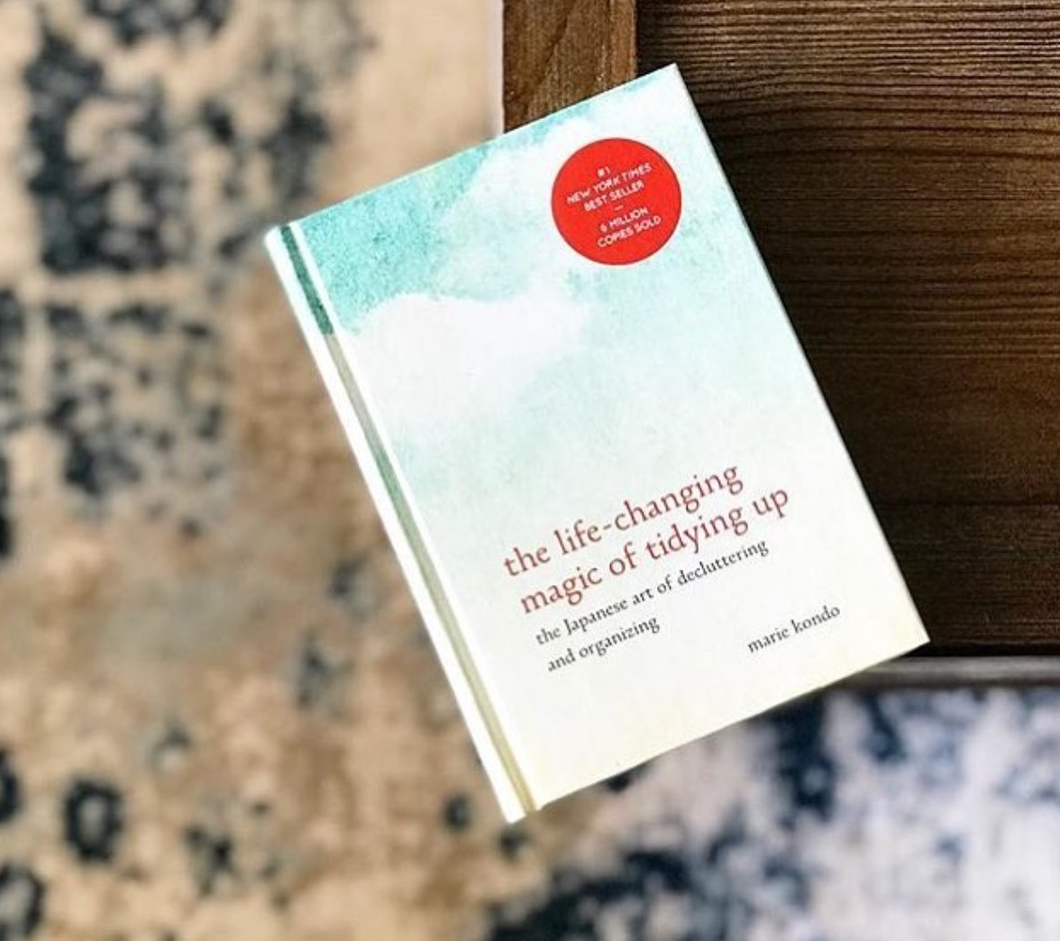Marie Kondo.
I know you know who she is.
"It doesn't spark joy."
I know you know what that is.
If not, check Netflix or walk into a church and ask any mom of your choice, and I assure you, they'll let you know.
Before I proceed further, let me preface: this is not a criticism of Marie Kondo, her theories of decluttering your home, or whatever your feelings may be about her.
What I am wanting to criticize, is the over-abundant manifestation of this type of ideology surrounding pop/Christian/non-Christian/millennial/whatever else culture today.
"If it doesn't spark joy, get rid of it."
Okay, cool. Sounds simple enough.
For decluttering, maybe this is genuinely a good approach. I honestly have no idea, I've never done it myself.
But, through spending much time in the world (I know, crazy) we live in today, I've encountered a certain fad mentality on numerous occasions that I hadn't truly been able to accurately put into words until I heard of Marie Kondo. So shout out to her.
It isn't strictly entitlement. It isn't strictly selfishness. It isn't strictly a cop out.
It's more of a mixture of the three, and a word encompassing all of that escaped me until I heard the phrase: "If it doesn't spark joy..."
If it doesn't spark joy.
Let's step away from this as a means of purging your closet, and let's look at this in terms of simply being alive.
A common thread in the minds of most young people you talk to today, is that things should inherently bring them happiness, just because they took the time of day to do/read/sign-up-for/buy it.
Not only is this an overly convenient aid to the wave of non-existent personal responsibility slapping America in the face, it's one that children— especially at this point in time— are having engrained into their minds at a very early age.
I can't tell you how many times we have had parents inform us that their kids want to take a break from Taekwondo, and that they are going to let them, because "they don't want to make them do something they don't want to do."
(And before I continue, maybe I should clarify again: I'm not saying parents should force their children to do things they hate. This is strictly in reference to specific situations).
Most of the time, these sudden notions of "hey, I don't want to do this anymore," come from a few main reasons: 1) they no-changed (didn't get their way), 2) they got in trouble (were embarrassed/ had their feelings hurt), and 3) yeah, that's about it.
What kids in these specific types of situations are basically saying is: "hey mom, this doesn't really spark joy for me," because they are temporarily upset about X, Y, or Z.
Facilitating the idea that you are owed some sort of satisfaction from everything you do is a disservice them and literally everyone they will ever encounter.
Luckily for declutter-ers, Marie Kondo clarified that if something was useful, but didn't necessarily spark joy, you should re-think chunking it. Examples of this would be— I don't know— a shower curtain, a doorknob, or instillation.
Unluckily for people living out this mantra in all areas, there is no such clause in a manual.
The biggest threats of this ideology can be narrowed down into three major points.
1. It's 'entitlement mentality' with catchier, trendier phrasing.
It's bad enough to think that you are owed anything for no reason in general.
This is magnified when you feel you are owed satisfaction from all things.
This is blown out of proportion, because you are now not only expecting one, grand gesture, or a singular break.
Now, expectations are exponential, resting atop whatever you happen to be doing at the moment, and limited to nothing.
2. It's unrealistic.
You know what doesn't spark joy for me?
Lots of things.
My crutches. My math class. Long lines. Bad traffic. The Kardashians. Doing push-ups. Infomercials. The color orange. Biased main stream media. Egg yolks.
Again, lots of things.
There's a level of selfishness required in life. This level, when maintained at the proper height, will— without a doubt— aid you in the capitalization of your success.
When applied to unhealthy relationships, bad friends, bad habits, or unnecessary hardship, sure, drop those things that aren't sparking you joy. That's where a beneficial level of selfishness comes into play.
When it comes to the four years hard sciences required for your major... Correct me if I'm wrong, but dropping them probably isn't going to bring you much joy.
At least not permenantly. Which leads me to:
3. It teaches people to be narrow-minded in the pursuit of happiness.
While on the journey of searching for enjoyable things in life, you probably won't actually encounter a staggering number of stepping stones that are enjoyable in themselves.
This mentality wreaks havoc in two parts: (1) it encourages short term whims over long term statisfacton, and (2) it sets people up for failure.
Most things that stereotypically bring joy, require at least some level of not so enjoyable work to acquire them.
Things such as attaining a degree, a job, a marriage, a family, health, or whatever else's may apply to indivuals specifically.
Acting as if the entire process of getting what you want out of life requires joy at every turn is laughable and immature.
I suppose, logistically, you can toss whatever you want from your life for whatever reasons suit you at that moment.
But if this is done in the pursuit of “joy," you aren't going to find it.






 The minimum wage is not a living wage.
StableDiffusion
The minimum wage is not a living wage.
StableDiffusion
 influential nations
StableDiffusion
influential nations
StableDiffusion







